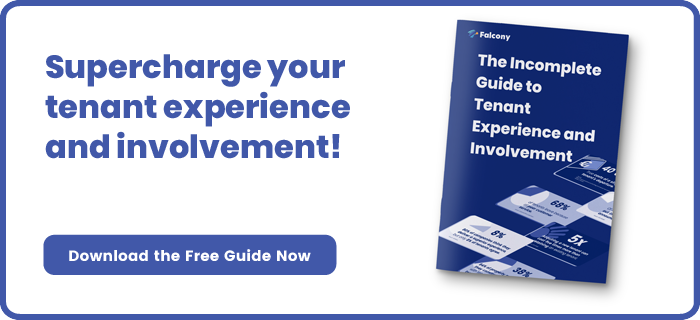What is a Tenant Complaint?
In the world of property management, tenant satisfaction plays a pivotal role in maintaining the harmony of a building or community. Tenants, whether in residential or commercial spaces, often have concerns or issues that need attention.
These concerns are usually communicated through a formal process known as a "tenant complaint." In this blog, we will explore what a tenant complaint is, why it matters, and how it can be effectively addressed to ensure tenant satisfaction and a well-managed property.
What Is a Tenant Complaint?
A tenant complaint is a formal expression of dissatisfaction or concern raised by a tenant regarding various aspects of their leased property or the property management services. These complaints can encompass a wide range of issues, including maintenance problems, safety concerns, noise disturbances, rent disputes, or dissatisfaction with property management practices. Tenant complaints are essential as they provide property managers with valuable feedback to enhance the tenant experience and maintain a positive living or working environment.
Why Do Tenant Complaints Matter?
Tenant complaints are not merely a channel for venting frustrations; they serve several critical purposes:
-
Identifying Issues: Tenant complaints serve as early warning signs for potential problems within the property. They can help property managers address issues before they escalate into more significant challenges.
-
Improving Tenant Satisfaction: Resolving complaints in a timely and effective manner can significantly improve tenant satisfaction. Happy tenants are more likely to renew leases and recommend the property to others.
-
Legal and Regulatory Compliance: In some cases, tenant complaints may relate to legal or regulatory requirements. Addressing these complaints promptly is crucial to avoid legal complications.
-
Maintaining Property Value: Keeping tenants content can help maintain the value of the property and attract new tenants in the future.
Common Types of Tenant Complaints
Tenant complaints can cover a wide array of issues, including but not limited to:
- Maintenance Issues: Problems related to plumbing, heating, electrical systems, and general repairs.
- Safety and Security: Concerns about security measures, lighting, or safety hazards.
- Noise and Disturbances: Complaints about noisy neighbors, construction noise, or other disturbances.
- Rent and Financial Disputes: Issues related to rent increases, billing discrepancies, or security deposits.
- Communication and Responsiveness: Dissatisfaction with property management's communication and responsiveness to tenant inquiries or requests.
Addressing Tenant Complaints Effectively
To ensure tenant complaints are handled efficiently and to maintain tenant satisfaction, property managers should consider the following steps:
-
Establish a Formal Process: Create a clear and standardized process for submitting and resolving complaints. Make sure tenants know how to submit complaints and what to expect in terms of response times.
-
Timely Response: Acknowledge complaints promptly and provide an estimated timeline for resolution. Even if the issue cannot be immediately resolved, keeping tenants informed is crucial.
-
Investigate and Document: Thoroughly investigate each complaint, gather evidence, and document all communication and actions taken.
-
Communication: Maintain open and respectful communication with tenants throughout the resolution process. Keep them informed of progress and any steps being taken.
-
Resolution: Take appropriate actions to resolve the issue as quickly as possible. Ensure that repairs are made, disputes are settled, or necessary changes are implemented.
-
Feedback: After resolving the complaint, seek feedback from the tenant to ensure their satisfaction and identify any further areas for improvement.
Conclusion
In summary, tenant complaints are a vital aspect of property management. They serve as a feedback mechanism that allows property managers to address tenant concerns, improve the tenant experience, and maintain the overall well-being of the property. By establishing effective complaint resolution processes and fostering open communication, property managers can build strong tenant relationships and create a positive living or working environment for all parties involved. Ultimately, a well-managed property that values tenant feedback is more likely to thrive in the long run.
We are building the world's first operational involvement platform. Our mission is to make the process of finding, sharing, fixing and learning from issues and observations as easy as thinking about them and as rewarding as being remembered for them.
By doing this, we are making work more meaningful for all parties involved.
More information at falcony.io.

Related posts
Conflict Of Interest With Commercial Tenant Communication
In the world of business, most of the time your interests align with your customers. However, this...
Six strategies for resolving commercial tenant complaints and disputes
As a commercial property owner or manager, it is important to effectively address tenant complaints...
Stop Pushing The Responsibility Of Communication To Tenants
It can be easy for commercial property owners or managers to push communication responsibilities...





